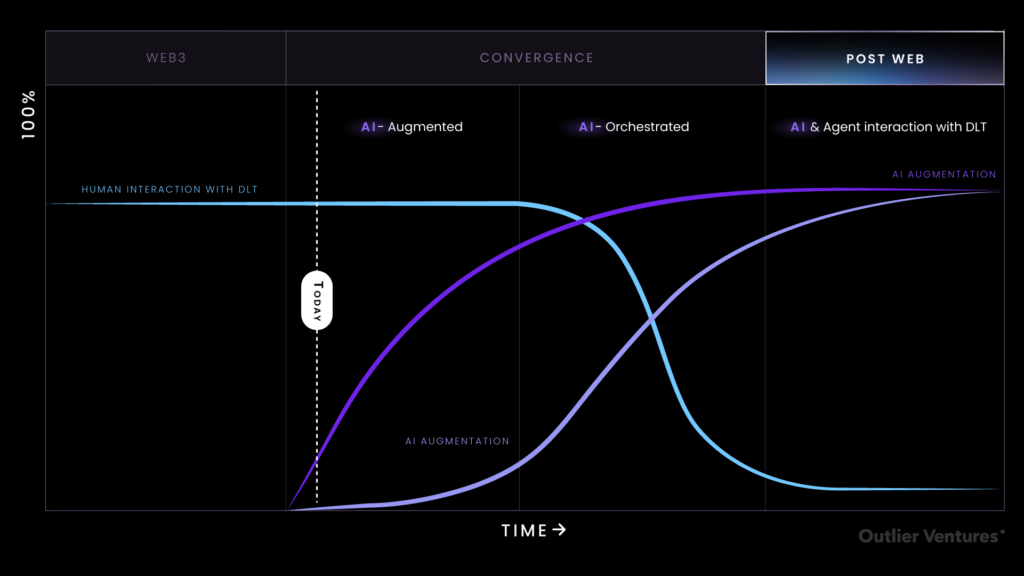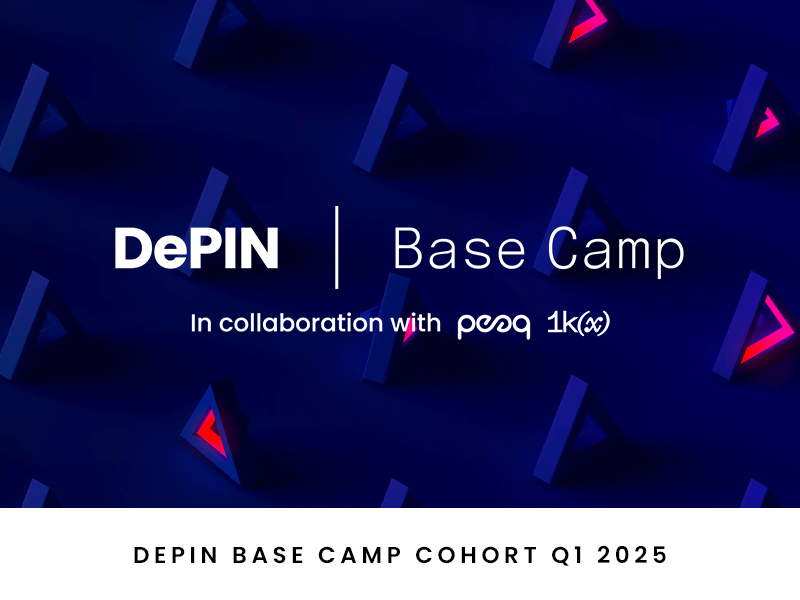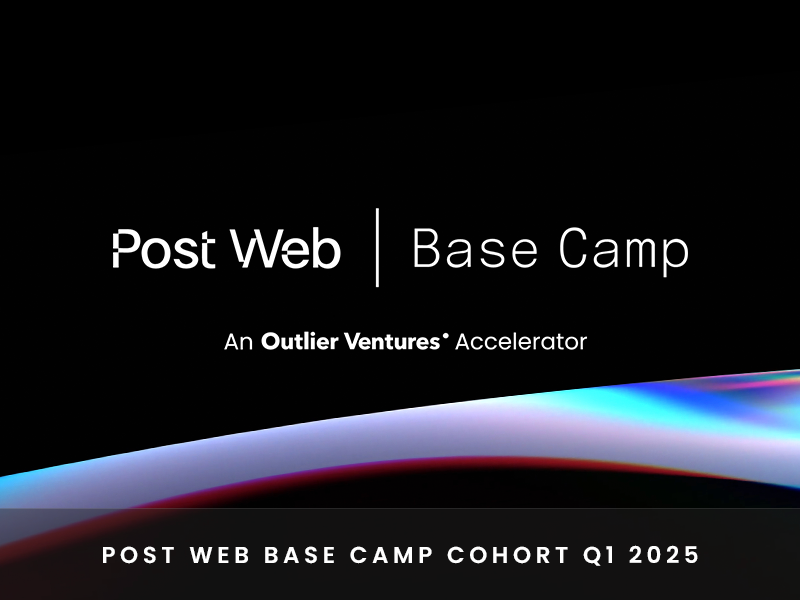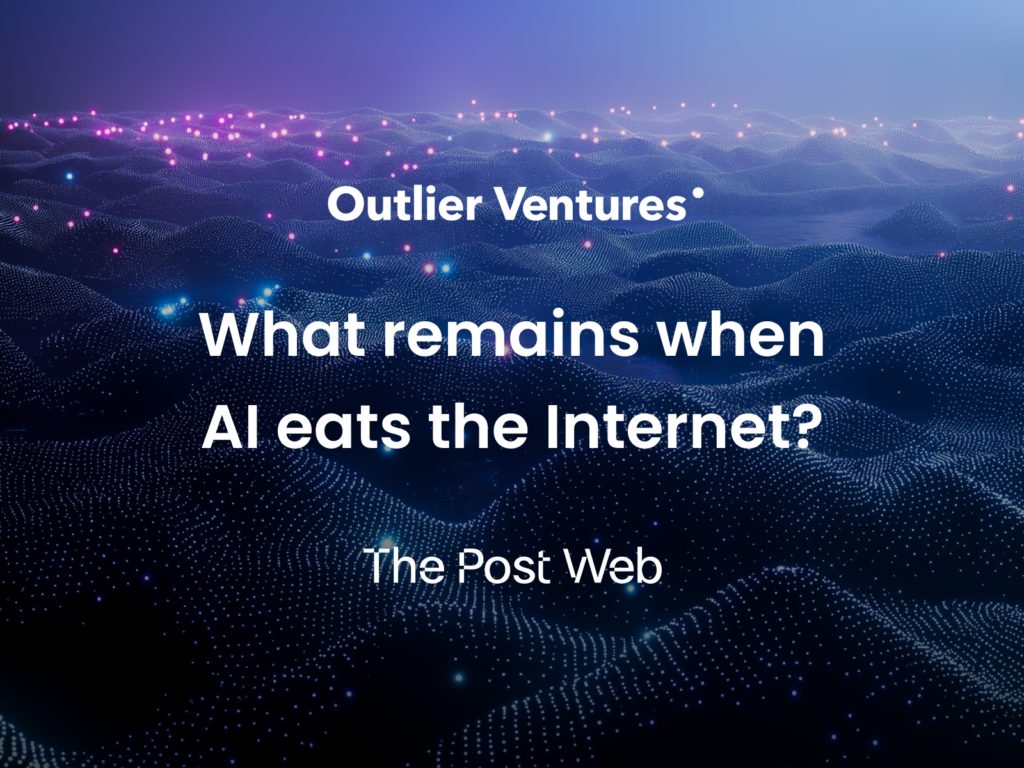Welcome back to The Post Web Deep Dive, an exploration of Outlier Ventures’ latest thesis that outlines how AI, Web3, and decentralization converge to reshape the internet. In this series, we unpack the frameworks, tech stack, and business models driving The Post Web era.
Imagine an internet that doesn’t fight for your attention — but works silently and efficiently on your behalf.
We’re entering the era of The Post Web, a radical evolution of the internet where autonomous AI agents become the primary actors online. Powered by the convergence of AI and DLT, this machine-first paradigm is reshaping not only how we interact with the web, but how businesses will operate, grow, and compete.
Welcome to the machine economy, where the rules of the Attention Economy no longer apply, and where entirely new business models are being born.
From Attention to Intention: The Shift in Internet Economics
For decades, the dominant online business model was built on attention. Ads, notifications, clickbait – all optimized to keep users scrolling. But in The Post Web, user delegation replaces direct interaction.
We move from an Attention Economy to an Intention Economy, where AI agents act on behalf of users to achieve real goals, bypassing distraction-based engagement altogether.
Businesses must pivot from vying for eyeballs to providing robust solutions that AI agents can readily deploy to achieve user goals. So, this shift dismantles many existing models and unlocks new ones centered on providing value directly to autonomous agents.

Jamie Burke Unpacks The Post Web Vision
New Business Models in the Machine Economy
The rise of the agent economy will unlock a plethora of novel business avenues for founders and builders, primarily focused on catering to the needs of these AI entities:
1. Data Provision & Verification
AI agents are data-hungry. They rely on curated, contextual, and verifiable datasets to make decisions. Businesses that provide trustworthy data, especially when backed by DLT for provenance, will become essential in this machine-first economy.
2. Decentralized Infrastructure Networks (DePIN)
Autonomous agents generate massive infrastructure demand. DePIN will power the machine economy, offering compute, storage, and connectivity at scale. Builders can win by launching, operating, and servicing DePIN layers.
3. Agent-First dApps
Forget clunky UIs. In The Post Web, dApps succeed not by serving users directly but by offering clean APIs, smart contracts, and composable primitives that agents can use. From DeFi to DeAI, the winners will be the ones who build for machines – not people.
4. Tools for Agent Development and Management
There will be a gold rush for platforms that help teams build, deploy, monitor, and secure AI agents. Think: agent SDKs, swarm orchestrators, AI firewalls, and agent performance dashboards.
5. Dynamic Human Interfaces on the Thin Web
Humans aren’t out of the picture, just interacting differently. The Thin Web will serve as a contextual, dynamic interface for higher-order needs like social connection and immersive shopping. Here, AI will generate bespoke experiences on demand, blending interface, content, and personalization in real time.
6. Real-World Asset Tokenization & Digital Commodities
As more assets become tokenized, from real estate to intellectual property, agents will need trusted platforms to create, manage, and trade tokenized goods. Expect growth in decentralized exchanges, RWA custody, and liquidity provision.
7. Agent Marketplaces
Agents will need to transact with other agents. There’s a major opportunity in building agent-to-agent marketplaces that include discovery, reputation systems, and secure economic exchange.
8. Delegation-as-a-Service
Imagine hiring an AI agent to manage your travel, portfolio, or logistics. Businesses can offer domain-specific AI agents, backed by trust frameworks like DLT, giving users peace of mind while delegating important tasks.
Go Deeper: The Full Vision of the Machine Economy
Dive into the full Post Web thesis and explore the rise of AI agents, tokenized assets, decentralized infrastructure, and the future of the machine economy.
What This Means for Builders
In The Post Web, the product interface disappears. The agent becomes the user. Founders, that means your product needs to be:
- Machine-readable
- Trustworthy
- Reliable
- Composable
What matters isn’t the front-end but the underlying utility, data access, and execution quality that AI agents can tap into. And while the machine economy might feel like a leap, it’s really an evolution. The Web3 primitives of the past decade — decentralized infrastructure, token economies, digital identity — have laid the groundwork. This isn’t the rise of the machines. It’s the rise of intention-aligned infrastructure, and it’s your opportunity to build for a smarter, more efficient future.
Stay Ahead of The Post Web Shift
We will start recruiting for the next Post Web Accelerator soon.
Want to be the first to hear about it? Subscribe to our newsletter for early access to the call for startups—plus exclusive insights, reports, and content on what’s coming next in the Post Web and machine economy.




